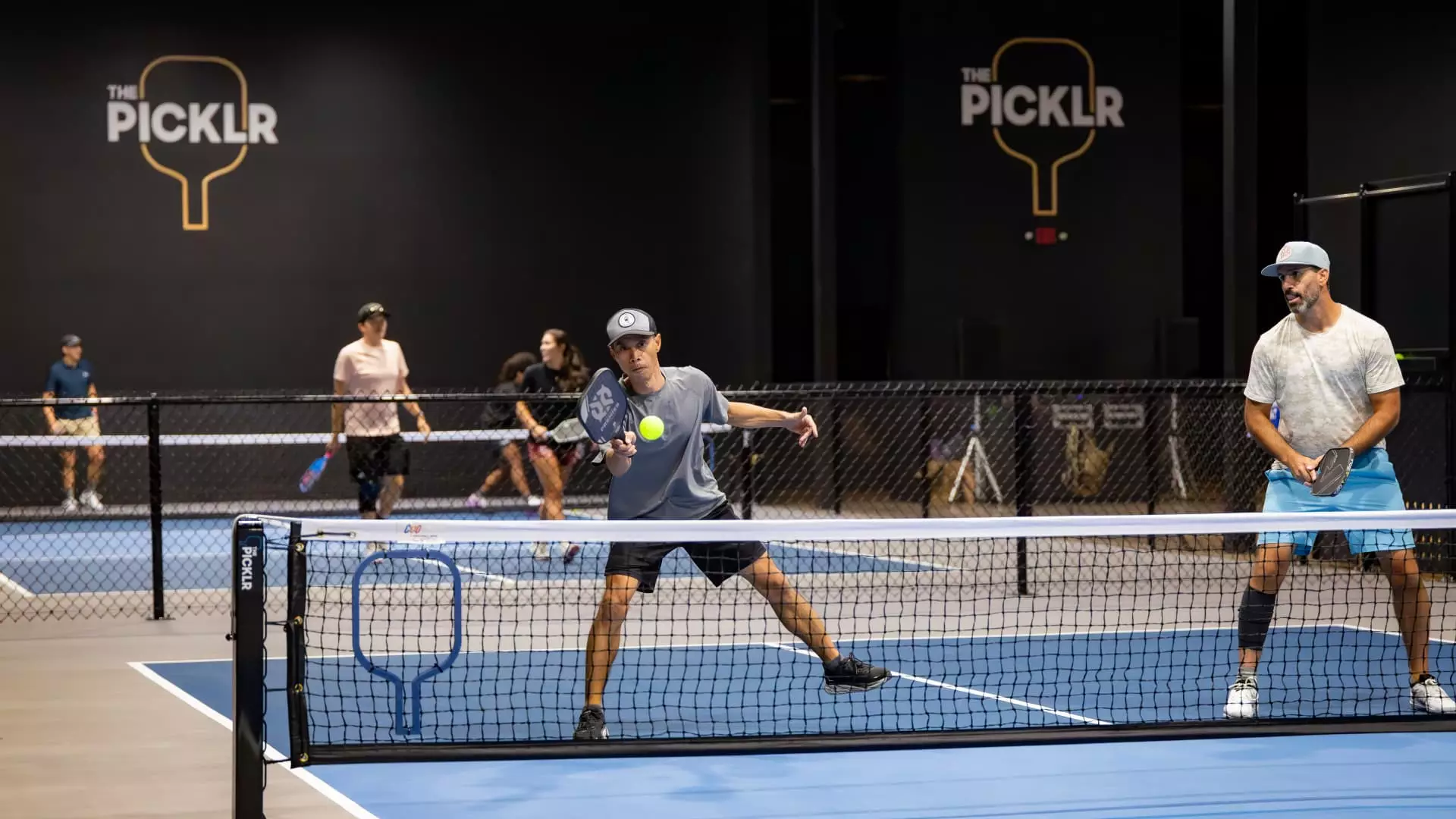In recent years, pickleball has blossomed into one of the fastest-growing sports, captivating hearts with its unique blend of tennis, badminton, and ping-pong. The Picklr, the world’s largest pickleball franchise, aims to capitalize on this trend by unveiling a plan to open 20 new locations across Japan in partnership with Nippon Pickleball Holdings. While the growth trajectory seems promising, the reality is that hasty international expansion often brings unforeseen challenges that can stifle even the most tenacious enterprises.
The Japanese Market: A Double-Edged Sword
Japan, a haven of fitness enthusiasts and sports aficionados, appears to be a goldmine for The Picklr. However, entering a market steeped in traditional sports like tennis and badminton could be a double-edged sword. Cultural preferences often play a pivotal role in sports adoption. Will Japanese consumers embrace a relatively new sport, or will they stick with the familiar? The skepticism surrounding the adaptability of pickleball in a country with ingrained sports traditions cannot be overlooked. While The Picklr’s CEO Jorge Barragan expresses boundless optimism, raw enthusiasm may not overcome entrenched habits.
Market Saturation: Might Less Be More?
The audacious growth plan includes nearly duplicating The Picklr’s current 40 locations within a year as it ramps up to 80, alongside 20 new locations in Japan. This aggressive enlargement could lead to market saturation. A membership model that thrives on community engagement might falter if the operations are diluted by sheer numbers. Japan’s preference for quality may lead to a backlash against clubs that cannot uphold the standard of experiences they expect. The Picklr risks losing the essence of what makes pickleball enjoyable—community and connection—in pursuit of growth.
Health and Community: Are They Truly Universal Values?
Barragan cites Japan’s focus on health and community as pivotal factors enabling The Picklr’s entry. However, these values vary considerably between cultures. While promoting health is universal, the structure and style of community engagement that works in the U.S. may not resonate with Japanese audiences. The social fabric of Japan is distinct, and American-oriented club activities might fall flat if they resist adaptation. If The Picklr fails to localize its offerings, the very values it is capitalizing on could become its downfall.
International Competition: The Global Playing Field
The pickleball tide is rising not just in Japan but globally, with professional leagues eyeing expansions across continents. Barragan’s claims about a shortage of leads for franchises raise eyebrows; saturation is not limited to Japan. Countries like Australia and India are positioning themselves to dive into this burgeoning sport. Thus, The Picklr faces not only local competition but also the rising stakes from other nations eager to grab a piece of the pickleball pie. The startup might benefit from the thrill of international partnerships, but they could ultimately ignite a competitive frenzy that dilutes individual players’ experiences.
Market Trends: Overshadowed by Reality
Statistics show a staggering growth in participation—223% over three years—yet numbers alone don’t capture the complexities of consumer behavior. The downfall of many thriving industries can often be traced back to a transient ‘trend’ wherein the novelty wears off. The sports landscape has seen numerous instances where rapid growth falters, leaving franchises high and dry. Barragan’s confidence is palpable, but relying solely on participation trends without a sustainable business model grounded in context-specific operations and thorough customer engagement could lead to miscalculations about the sport’s longevity.
Final Thoughts: A Cautiously Optimistic Future
Amidst the buzz surrounding the expansion, it’s vital for The Picklr to proceed with caution. The delicate balance of ambition and pragmatism will determine not just the fate of the franchise in Japan, but the future trajectory of pickleball itself. As the company looks to thrive, it may find that less haste might yield better results in cultivating a lasting passion for the sport.


Leave a Reply